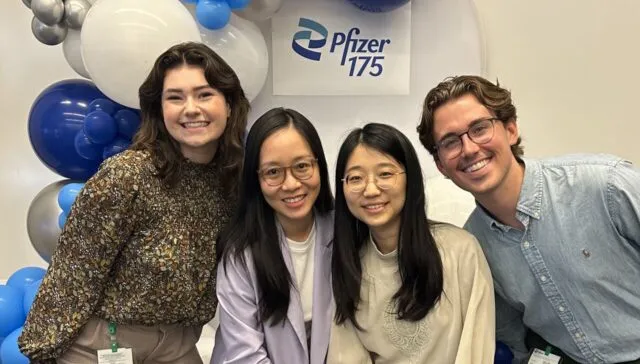Designing Equity-Focused Programs to address racism and break down health inequities

School nurses are essential public health workers, playing a key role in promoting child and adolescent physical and mental health, and well-being. The School Health Institute for Education and Leadership Development (SHIELD) provides training and education to school nurses and other school health professionals in Massachusetts. Our mission is to advance school health practice to meet the diverse needs of the multicultural population of students and families throughout the Commonwealth.
Enhancing Diversity, Equity, Inclusion, and Justice Training for School Nurses
Each year, SHIELD provides professional development (PD) for nurses working in districts funded by the Comprehensive School Health Services (CSHS) grant through the Massachusetts Department of Public Health (DPH). Recipient districts meet several performance measures related to student and community health, including decreasing chronic absenteeism and providing services that are community-based and culturally and linguistically relevant.
Recognizing the link between racism and public health, this year’s SHIELD curriculum focused specifically on performance measures related to racial equity. Districts are encouraged to conduct explicit racial equity needs assessments to assess their progress toward designing programs that achieve equitable outcomes. We felt that a PD series dedicated to diversity, equity, inclusion, and justice (DEIJ) and examining racism and equity in the school environment would increase the capacity for districts to meaningfully take on this work.
Through this innovative multi-session education program, school nurses expanded their knowledge and enhanced their skills related to DEIJ, including:
- Develop a foundational understanding of the history of racism and its influence on the societal structures and environments racialized people(s) live in today
- Recognize things they may be doing (or not doing) in their nursing practice that could cause harm to students, as well as things that may be helpful
- Identify the impact of structural and institutional racism on students, and how to connect impacted students to resources and supports
- Develop strategies and resources to support learners’ continual personal journeys to becoming anti-racist practitioners, and to help them to assume active roles in their schools/districts in promoting student racial and health equity
The four-part PD series was created in partnership with faculty from BU’s Wheelock College of Education and Human Development and College of Arts and Sciences (CAS), designers of the new transdisciplinary Master of Education in Education for Equity and Social Justice program.
- “Understanding the History of Racism and its Legacy that Impacts Students Today,” was the first in the series and focused on the historical roots of racism, and its persistence in the systems and structures within which students live and learn today.
- “Racism in Education: Physiological Consequences,” provided a closer examination of how experiencing racism contributes to an increased allostatic load and related physiological consequences.
- “Research and Data Literacy,” highlighted bias embedded in the data we collect, and the impacts of using biased data to inform practice in healthcare and community settings.
- “Becoming anti-racist school health practitioners: Exploring best practice approaches” session four, builds on the previous three sessions to define an anti-racist educational system, detail the role of the school nurse in promoting an anti-racist school culture, and helps nurses understand how they may address health equity in their practice.
These sessions were structured to appeal to a variety of learning styles and meet nurses within their current understanding of racism and its impact on health outcomes. The content was delivered verbally and in writing, in large and small groups with live sessions facilitated via Zoom. Learners have participated through a variety of engaging methods including structured discussions using chat waterfalls, and interactive maps, as well as collaborative case study exercises. The trainings also provided nurses with a four-step analytical process for developing racial justice competencies in their practice.
Overall, response to the trainings thus far is very positive, and we are committed to continuing to adapt our teaching style and learner activities to best meet the needs of the workforce as we receive actionable feedback. We have developed case studies and examples that describe real-world scenarios and have curated resources that outline specific action steps to take for combatting racism and inequity in schools.
Expanding our Impact: Contributing to the Science of DEIJ training for School Nurses
To fully understand the impact of the SHIELD health equity educational series, the team has been conducting a rigorous evaluation process. Dr. Thomas “TJ” McKenna, lecturer in Science Education at Wheelock College, has been distributing surveys to participants as part of a research project on school nurse response to PD focused on DEIJ. The preliminary results of this work will be presented at the National Network of Public Health Institutes (NNPHI) conference in May 2023.
Discussions with our faculty partners, combined with the process of encouraging school nurses to examine their own nursing practice and school environments, have led us to also begin to take a deeper look into our other SHIELD courses to find ways to incorporate DEIJ components. As an example, we are currently in the middle of revamping our School Nursing Foundations Course and are looking closely at how we address racism and social determinants of health throughout the course and adding new content to further address DEIJ issues.
Our CSHS programming this year is a critical first step in this larger process. By connecting the series content to grant performance measures, supplying ample quality resources, and opening the floor in our last session to participants to discuss how they have (and will) enact strategies for change, we hope to develop and foster an empowered group of school nurse leaders ready to take action to improve racial and health equity in their respective districts. We hope that the impact of this training will work in parallel with other efforts to reduce the impact of racism on youth and family health and overall increase the ability for nurses to provide dignified, equity-focused care regardless of the setting.
Expanding our Impact: Beyond the Academy
In an effort to break down the health inequities due to systemic racism in the nursing profession, we have shared long-overdue racial reckoning statements from professional organizations, like the American Nursing Association (ANA). Sharing these documents and taking the time to reflect on the reactions published by nurses of color, should be an essential part of every school nurse’s personal journey.
We are delighted to have already seen evidence of the impacts on our workforce. In our course evaluations, our participants have noted positive changes in their nursing practice, including:
- Posting clinic signage in multiple languages
- Keeping the information learned about biased data in mind when analyzing their district data
- Utilizing the resources and knowledge gained from the PD sessions to educate nurse colleagues and teams
The profession of nursing is as steeped in racism and its resulting inequities as any other sector. By exploring both the history and modern reality of school nursing; giving nurses the tools to recognize racism and inequity in their own practice and school communities; and helping them develop plans to address and ultimately work to eradicate racism within school nursing practice, we are hoping to move the needle in the right direction for students and families.
My thanks to the SHIELD team: Beverly Heinze-Lacey, Patricia Elliott, Lesly Zapata, Katie Davis, Ernestina Sena, Kathleen Macvarish , our Wheelock and CAS collaborators: Felicity Crawford, Adam Thomas Labadorf, Barkha Shah, Melisa Osborne, Teresa Rueger, Thomas “TJ” McKenna and our partners at DPH SHU: Karen Robitaille, Caitlin Pettengill, Janet Guertin Moruzzi
Erin Sivak, MSN, BSN, RN, is the Nurse Educator for the SHIELD. Erin has developed expertise in school nursing and supporting students with disabilities through her experience working as a nurse in multiple community settings including public schools, educational collaboratives, and community provider agencies. In her time at SHIELD, she has developed trainings related to SDoH, including a mental health series, programming on supporting LGBTQ students, and is currently developing a comprehensive collection of trainings and resources on managing students with special health care needs and disabilities.




